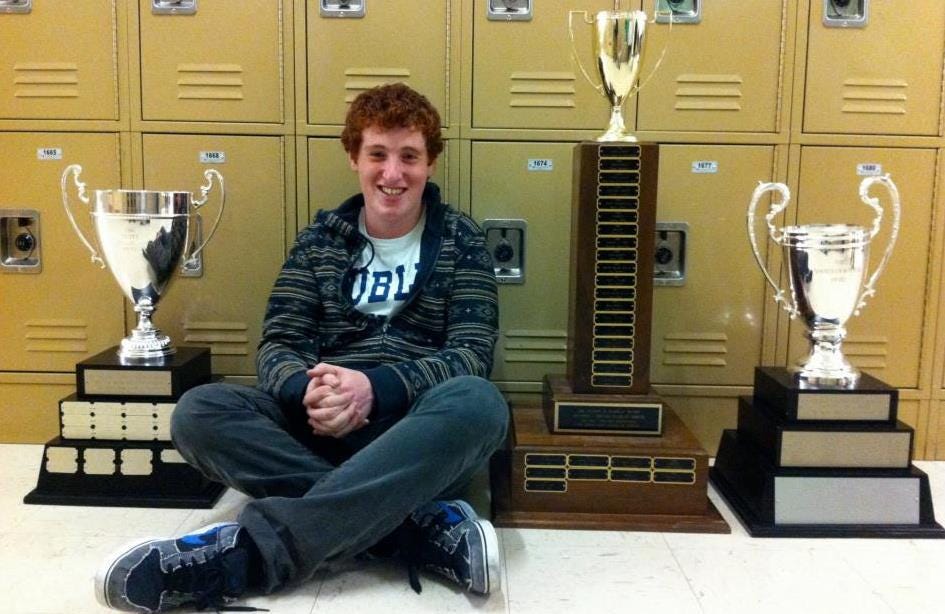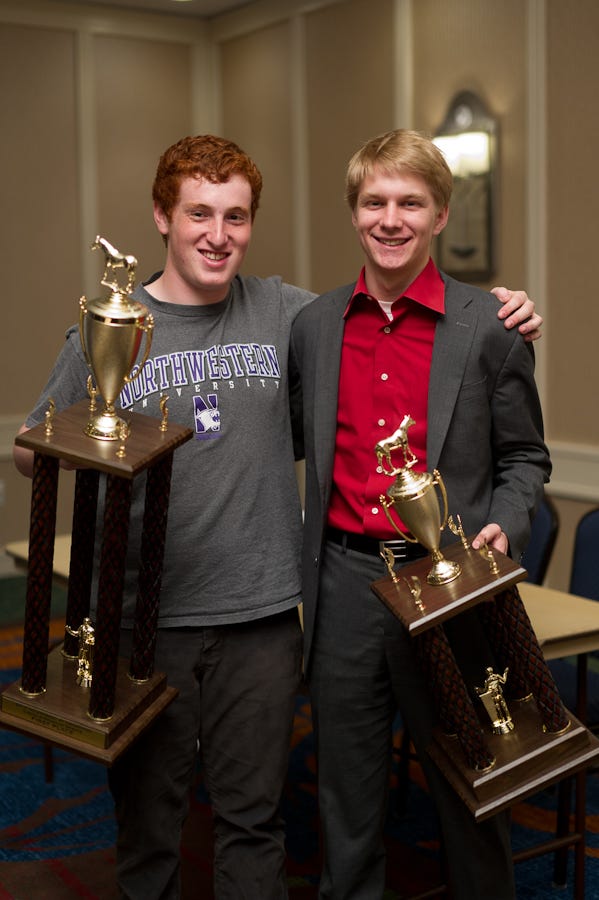VBI Family: Interview with Noah Star


Noah Star is a sophomore studying political science at Northwestern University. He graduated from Lexington High School in 2012, where he debated for three years. He attended the Victory Briefs Institute the summer before his senior year, during which he won, among other tournaments, the Greenhill Fall Classic, the New York City Invitational, the Dukes and Bailey Award, and the 2012 Tournament of Champions. He coached the TOC Champion in 2013 and now works with his alma mater.
You didn't start debating until your sophomore year, but still had a phenomenal career. How did you catch up to other kids in your class?
I think it was honestly just a combination of luck and hard work at first. I went to policy camp and LD camp after my sophomore year and that was a lot of debate that helped me make up for my lost year. As a young debater, I really just tried to play to my strengths and get people to the util/K debate. Usually my success was contingent on whether or not I could force my issues in the round. Then after I started winning a bit, I got more confident and that definitely helped a lot. With enough confidence, I think most obstacles in debate rounds are surmountable. So I’d just think for a little bit about the new arguments I’d encounter and find ways to beat them.
Did you think you would win the TOC going into the tournament?
I definitely thought I had a good shot.
How many hours did you spend each week preparing for the TOC?
It was awhile back but definitely at least an hour or two a day starting the beginning of April.
How did it feel when you realized you had won?
It was pretty surreal. Elims at the TOC are a blur and so I hadn’t really gotten a chance to let any of my victories sink in or more importantly, thank any of my coaches. So I sent out a few texts because at that point Jeff Liu and Steven Adler had left and then I gave Chris Palmer and Sara Sanchez some big hugs. There were a lot of other people who were instrumental in my TOC victory that I had to thank too, like Catherine Tarsney, Jason Zhou, Jake Nebel. It was just an amazing way to cap off my debate career but I wanted to make sure everyone who helped me was thanked because I couldn’t have done it without them.
You're a research assistant at Northwestern! What sort of research do you do, and do you think skills you learned from debate have carried into those fields?
So I work for the Medill School of Journalism at Northwestern and the Professor I work for is a media consultant. She works with organizations of all varieties to figure out who their audience is and how to best target that audience. So over the summer I helped work on some projects with Al-Jazeera America and a research grant about mobile use in the Middle East. My debate skills DEFINITELY pay dividends when it comes to my job. I can research a lot quicker than some of my peers and my professor has always been impressed with my ability to quickly gather data and summarize it concisely; two skills that are certainly derived from my time in debate.
Aside from research, what else are you involved in on campus?
I stopped doing debate after high school and filled the gap with a bunch of other extracurriculars. I am the Vice President of my fraternity, Midwest Regional Co-Chair of J Street U, (a student lobby organization that fights for a 2-state solution to the Israeli-Palestinian conflict), and a Senator in my student government. I also help put on Northwestern’s biggest student concert, Dillo Day, by acquiring corporate sponsors for the event.
Where would you ideally like to work after graduation?
I am still not really sure about the answer to this question. I want to go into public service but I am not exactly sure how I plan to get there. I’ve thought about law school and I’ve thought about getting a Phd in Political Science or History. I’ve also thought about just throwing myself into DC and trying to find work as a campaign consultant. And I know that I definitely want to take some time off from whatever I end up doing and work for AmeriCorps. So we’ll see what happens in 2 and a half years but I imagine it will be one of those paths. Clearly though, debate/oratory will be a part of whatever I do after graduation.
If you could say anything debate-related to your sophomore self, what would you say?
Don’t be intimidated. You got this.
What is the most important thing you learned at VBI?
VBI prepared me to combat any type of argument that I might see in LD. The curriculum taught me how to dissect arguments down to their components and then to find flaws or criticisms to beat back the argument. This type of education improved my analytic skills and helped me succeed during my senior year of debate and beyond.
You wrote an article earlier this year about why spreading might be bad for debate (http://victorybriefs.com/vbd/2013/9/a-plea). You were pretty fast when you debated- what made you change your mind?
The point of my article was less that spreading is bad for debate, but more that is bad for people who are trying to learn how to debate or from debate. At the end of the day, all debaters can fall into one of those two categories, so perhaps this is a holistic criticism of spreading unintentionally. But to get to the actual question at hand, what changed my mind was a few experiences I had at Northwestern. Early on at NU, my friends would ask me what debate was like and within that question was usually a description of their own expectation of what debate is. That expectation was never speak as fast as you can to get as many arguments in. Then, in a job interview the same type of dialogue happened and it made me really think about the purposes of spreading in the activity. I think that there is an educational element to debate that is lost when so much emphasis is put on speed. There is a way to spread that is better for you and debate and that is one that emphasizes word efficiency and persuasion while allowing you to speak incredibly quickly. That model is certainly better than some of the habits I see in the status quo habits I know that I had a part in as a debater. Basically, I think that debate should be more accessible to the public because that translates to a skill set that will be more accessible in a post-debate world. Not much is lost by doing away with spreading and I would argue much more is gained as the focus will shift to quality over quantity.
Lastly- what is your favorite memory from VBI?
The top-lab mentor program is probably my favorite VBI memory. I learned so much from Jake, my mentor, and Henry Zhang, my fellow mentee. Jake and Henry are both brilliant debate minds and it was really rewarding to have that time late at night where we all drilled and worked to get better at debate.




